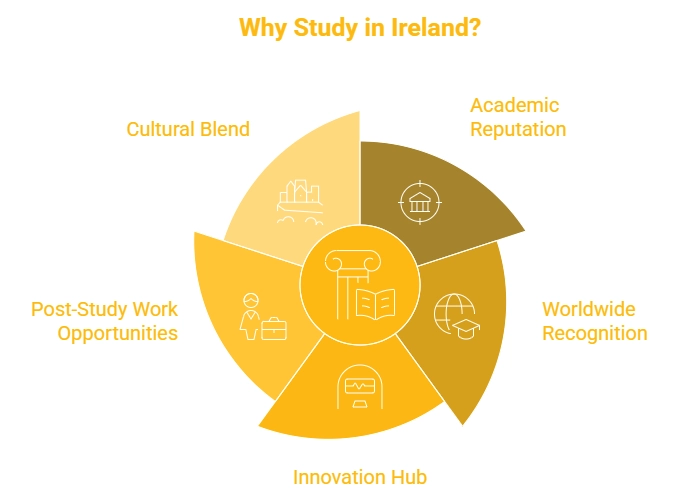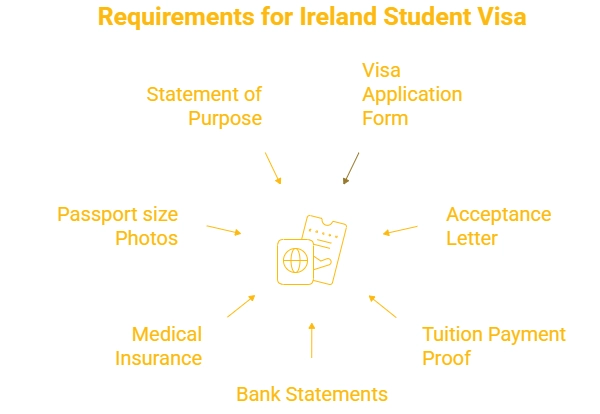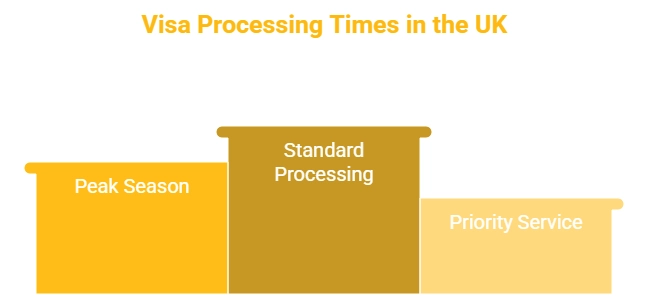Study in Ireland
Don't know what to do?
Get Free Counseling
Why Study in Ireland?
Ireland has become a popular place for international students because of its good schools, lively culture, and career opportunities. It's a good option if you're thinking about studying abroad, and it's different from the US, UK, or Australia due to its welcoming atmosphere and chances to work after you graduate. Ireland has some highly ranked schools. The education focuses on new ideas, research, and real-world skills, so students are ready to work anywhere in the world when they finish school.
- Ireland is an accessible study destination for UK students, with Dublin just a one-hour flight from London.
- In 2023, more than 4,500 students from the UK enrolled in Irish higher education, and the numbers are rising after Brexit.
- Irish institutions are world-class. For example, Trinity College Dublin ranks 87th and University College Dublin ranks 126th worldwide, putting them in the top 1%.
- Ireland has a high graduate employment rate of 87.2%, which is among the highest in Europe. It also has strong links to global companies like Google, Meta, and Pfizer.
- Studying in Ireland gives UK students a unique way to keep academic and professional ties within the EU.
- All higher education courses are taught in English, so there are no language issues for UK applicants.
Top Reasons to Study in Ireland
Here are key reasons students choose Ireland:
- Academic Reputation: Schools like Trinity College Dublin and University College Dublin are highly ranked globally.
- Worldwide Recognition: Irish degrees are respected internationally, mainly in technology, medicine, business, and the humanities.
- Innovation Hub: Ireland hosts major tech firms like Google, Facebook, and Apple, giving students access to advanced industries.
- Post-Study Work Opportunities: The Third Level Graduate Scheme allows graduates to work in Ireland for up to two years.
- Cultural Blend: Ireland mixes historical sites with modern urban life.

Eligibility for Ireland Student Visa
To be eligible for an Ireland student visa, you must meet the following eligibility criteria:
- Acceptance into a full-time program at an Irish school that is approved.
- Proof of sufficient funds to cover your school fees and living costs.
- Have a valid passport and the necessary travel documents.
- Provide proof of your educational background.
- English Language Proficiency (IELTS or TOEFL).
- State your intention to return home once your studies are done.
Ireland Student Visa Requirements
- A completed visa application form.
- A letter of acceptance from your Irish school.
- Proof of payment of your tuition.
- Bank statements that prove you have enough money.
- Medical insurance coverage.
- Passport-size photos.
- A statement of purpose.
- Your academic transcripts and certificates.
- Proof of English Language Proficiency.

Ireland Student Visa Processing Time
Visa processing times differ based on nationality and the time of year. For applicants in the UK, typical processing times are:
- Standard processing: 4 to 8 weeks
- Peak season (June–August): Allow extra time because of increased applications
- Priority service: May not be an option for student visas

It is best to apply at least 3 months prior to your planned travel to prevent delays.
To apply for an Ireland student visa, you'll generally need these documents:
Top Universities in Ireland
Ireland boasts several prestigious universities and colleges that attract students from across the globe:
|
University Name |
Location |
Global Ranking |
|
Trinity College Dublin |
Dublin |
Top 100 |
|
University College Dublin |
Dublin |
Top 200 |
|
National University of Ireland Galway |
Galway |
Top 300 |
|
University College Cork |
Cork |
Top 300 |
|
Dublin City University |
Dublin |
Top 400 |
These institutions offer a wide range of undergraduate, postgraduate, and research programs across disciplines.
Cost of Studying in Ireland
In Ireland, tuition varies by program and school.
- Undergraduate studies: €9,000-€20,000 yearly
- Graduate studies: €10,000-€25,000 yearly
- MBAs: €20,000-€35,000 yearly
Students may also need to pay registration, book, or lab fees.
Living Cost in Ireland
The cost of living in Ireland varies with lifestyle and location. Students typically spend the following each month:
- Accommodation: €400-€1,200
- Food: €200-€300
- Transportation: €50-€100
- Personal expenses: €100-€200
Note that Dublin usually has higher prices than smaller cities such as Limerick and Galway.
Scholarship in Ireland for International Students
Ireland provides various scholarships for international students to assist with their finances:
- Government of Ireland International Education Scholarships
- University-specific scholarships (e.g., UCD Global Scholarships, Trinity College Scholarships)
- Research grants and fellowships for postgraduate students
- Private and corporate scholarships based on merit or financial need.
Most scholarships require a strong academic record and a convincing personal statement.
Steps to apply for an Ireland Student Visa
To apply for an Ireland student visa, follow these steps:
Step 1: Choose a course and educational institution.
Step 2: Receive your acceptance letter.
Step 3: Pay your tuition.
Step 4: Collect all necessary documents.
Step 5: Fill out the online visa application.
Step 6: If needed, schedule an appointment to provide your biometrics.
Step 7: Submit your application and supporting documents.
Step 8: Await the visa decision.
Step 9: Travel to Ireland and register with immigration authorities.
Post-Study Work Visa in Ireland
Ireland provides attractive work opportunities for international students after they graduate.
- The Third Level Graduate Scheme lets non-EU students stay for up to two years after finishing their studies to find a job.
- The Stamp 1G visa is given to graduates who qualify, allowing them to look for work or take a job.
- Students who get long-term employment may be able to apply for residency after some time.
These factors make Ireland a great option for students wanting to start their careers in Europe.
Why Choose Y-Axis?
- Professional Advice for UK Applicants: Tailored assistance for UK students submitting applications to universities in Europe.
- End-to-End Application Support: Everything under one roof, from choosing a university to applying for a visa.
- Scholarship Help: We assist you in locating and submitting applications for the top scholarships for which you qualify.
- Preparation and Review of Documents: Proper documentation is necessary to prevent application delays or rejections.
- Trusted by Thousands: More than 1 million customers have used Y-Axis to successfully complete their international education.
Looking for inspiration
Explore what Global Citizens have to say about Y-Axis in shaping their future
Frequently Asked Questions
